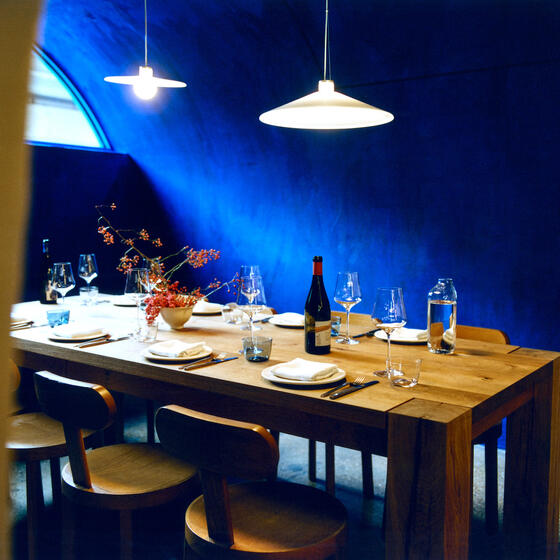Meet Hannah Crosbie, the wine expert and writer behind Dalston Wine Club, who is on a mission to make the bottle brigade more inclusive. She shares the story behind her rise, a pick of go-to London wine spots and the labels she’s buying in 2023
03 January, 2023
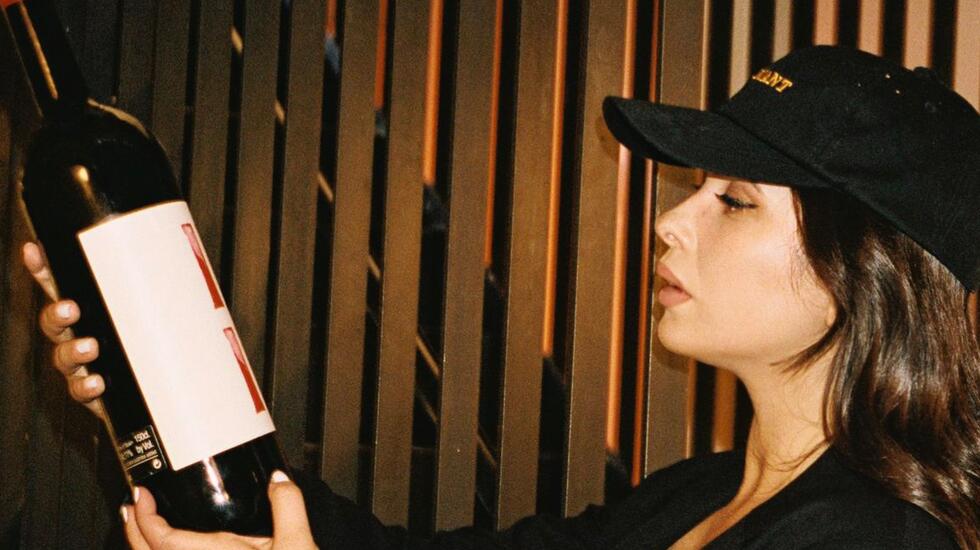
London-based
Hannah Crosbie jokingly calls herself an “aspiring
wine mum”. Her mission? To bring up a new generation of wine
drinkers. After posting about bottles on Instagram, the 25-year-old
wine expert and writer discovered a ready audience of curious young
oenophiles wanting to learn about wine but struggling to find a
welcoming community in the notoriously intimidating industry.
Struck by the barriers faced by new recruits to the game, she
launched Dalston Wine Club in 2020. The wine club runs regular, reasonably priced
tasting nights to introduce wine-curious young Londoners to new
bins in an open – and accessible – environment.
It’s already a cult hit. Getting a ticket is harder than scoring
your Glastonbury wristband, and Crosbie has innovative producers
and old hands alike queuing up to get involved, proving that
there’s a wine world interested in talking to drinkers beyond the
snobby bottle bores.
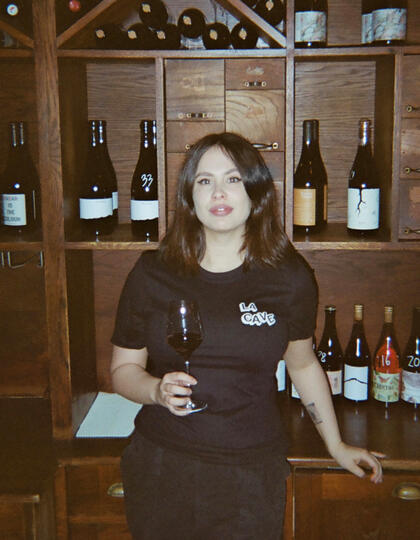
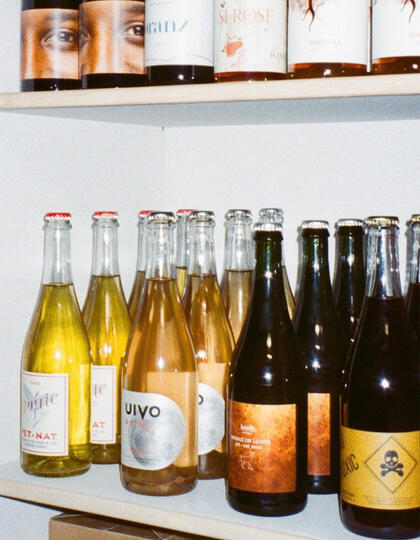
Hannah Crosbie, left, and club tastings.
At only 25, Crosbie has forged her own place in the industry,
writing for nationally renowned drinks publications and newspapers.
Posting photos featuring glasses of deep ruby-red pours in east London hangouts on her Instagram, she’s showing
that wine drinking can be a young person’s sport. Now, more than
ever, she says, social media is democratising the game.
We sat down with the wine expert to chat about getting into
wine, making the industry more accessible and top tips on drinking,
and buying, 2023’s hottest bottles.
I don’t come from a big family of drinkers, so my first time
interacting with wine properly was when I began serving rudimentary
pairings in my first hospitality job, at 17. I became fascinated
with wine, food, and the relationship between them.
Wine combines a lot of things that I love: anthropology,
history, science and sociology. I studied English at university,
became a copywriter, and worked on my wine qualifications in the
background. It was during lockdown that I decided to begin posting
on social media. The way I was speaking about it really resonated
with people. There’s a huge community of young chefs and
restaurateurs out there, but nothing similar in the wine world. One
thing that’s been really important to me is straddling the line
between being aspirational and relatable to young people, and being
respected by the industry. I feel like I can say I’ve done both of
those things now.
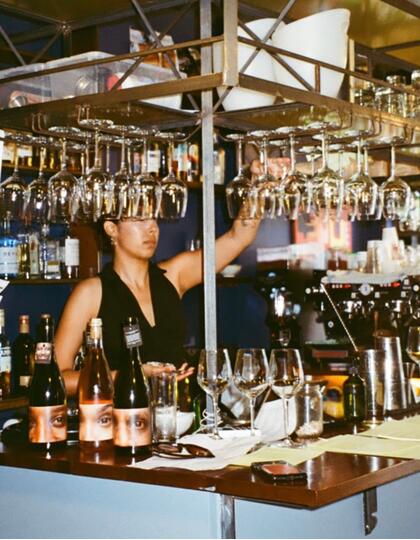
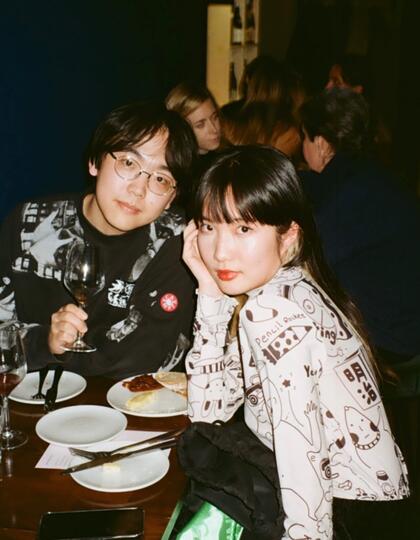
Crosbie runs regular Dalston Wine Club tasting
events.
I launched Dalston Wine Club two years ago. Before that, I would
go to wine events and be served tiny pours, surrounded by people
who I felt were judging me if I wasn’t swirling or spitting
properly. I thought, wouldn’t it be great if there was an event
where you were allowed to bring friends, the pours were really big,
and you didn’t have to spit them out? That’s what Dalston Wine Club
came to be. It’s the place I wish had existed when I first got into
wine. It started as just 12 people at the first event. Last month,
we held a night downstairs at The Hoxton hotel with 60 people.
When you’re on the outside of the industry, it looks
impenetrable. Then, once you’re inside, you find more young women
working in it. I’ve been lucky; I haven’t had much kickback as a
woman apart from at an awards show two years ago, when someone
referred to me as the “flavour of the month”, and, I mean, I’m
still here, so they were obviously wrong.
There’s definitely been a positive shift towards inclusivity,
but we’d be naive to say the wine industry’s problems were all
solved. In terms of gender, we’re moving in the right direction,
but in terms of race and class? There’s nowhere near enough being
done. Quite a lot of people are into wine because they have a
family that’s into wine, and you only need to go to one wine
industry event to see the diversity problem.
The natural wine movement has done a lot, getting more young
people into wine. It was a space we felt we could inhabit without
fear of being judged by the older generation. Then, there’s this
real Gen Z-millennial desire to know the provenance of what we’re
putting into our bodies. It’s happening with traceability, and
organic fruit and veg, milks and meats. Wine is just an extension
of that. Lockdown was another big thing, too. It brought our
drinking habits into sharper focus, and we started drinking less
but drinking better.
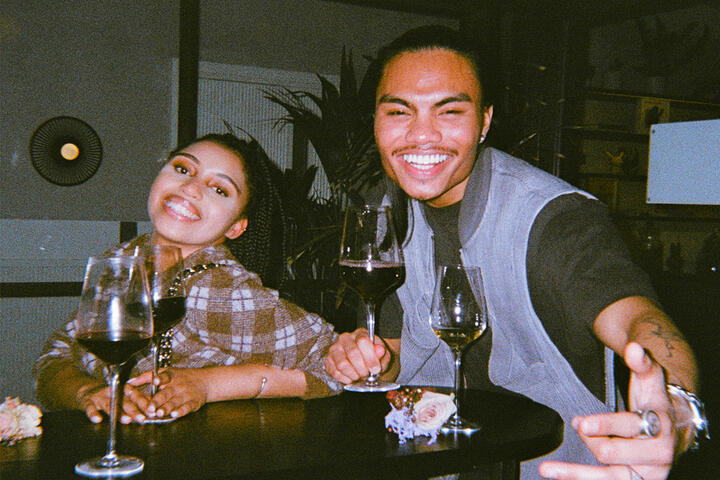
Guests at a Dalston Wine Club event.
It’s annoying, but the only way you can really learn about wine
is to drink lots of it. Unless you have a parent with a massive
cellar, though, or loads of cash, that’s not a viable option.
The Real Wine
Fair takes place every other year and is an amazing opportunity
to taste wines. You can come to Dalston Wine Club events, too,
where, rather than buying four bottles, you can drink four
different glasses, and find the nuances in them. If there’s someone
in the industry you admire, just reach out to them with a question.
Don’t be afraid to ask for advice because it’s such a warm and
welcoming industry to be a part of.
Bar
Crispin in Soho is perfect. I have this running joke because
whenever I leave, I’m like, “Bye!”, and they’re like, “See you next
week!”, and I say, “Yeah, see you next week!” That’s how often I’m
there. But it’s really good. I’m also really excited about what’s
happening just around the corner from me in east London. There’s a
new wine bar called Oranj offering a Decatur food pop-up alongside natural bottles.
Cave
Cuvée on Bethnal Green Road. If I’m really struggling and need
a last-minute bottle, I’ll definitely go there. They’re really good
and quite well-stocked. Obviously, they’ve got a massive shop in
Finsbury Park, but this store has a smaller, curated selection.
My friend Henna Zinzuwadia. She was just named GQ Sommelier of
the Year. Henna worked with MJ Wine Cellars, which is one of the only
UK-based companies actively importing wines that aren’t made by
white men. They work with women winemakers and Black-owned
businesses. She was also named the Be Inclusive Hospitality’s
People’s Choice Person of the Year for 2022 – super-cool.
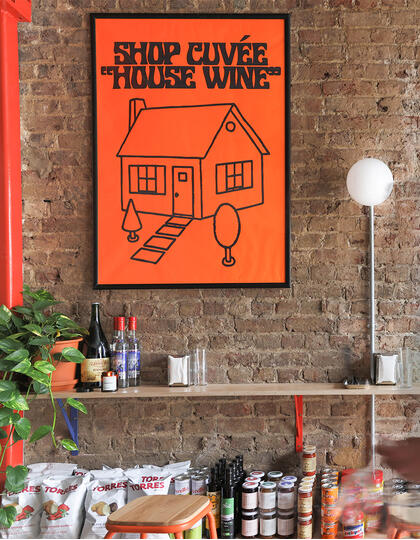
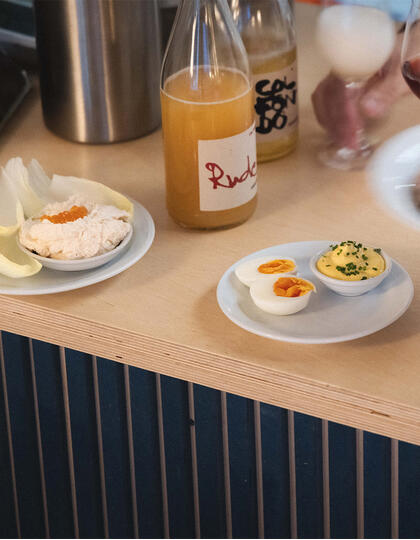
Cave Curvée on Bethnal Green Road is Crosbie’s go-to for a
last-minute pick.
I like to start with a sparkling. Sparkling wine is brilliant,
and there’s real affordability and accessibility to be found beyond
champagne. I had a bottle of an affordable but very luxurious
sparkling muscadet from the super-badass, women-run importer
Emile Wines
recently.
My favourite kind of wine is burgundy, both red and white. Red
burgundy is made with pinot noir. White burgundy is made with
chardonnay. A really rich chardonnay with a good acidity but lovely
full, round buttery flavours is perfect with roast chicken.
I’m not much of a dessert wine gal, so I’d probably have a
whisky instead. Never Say Die is England’s first-ever bourbon.
It’s made in Kentucky and brought over in a big shipping container
for six weeks, so it’s ocean-aged, then bottled in England. I’d
have that on the rocks for dessert.
I’d like to go to Oregon. I’ve been to France, and I’m hoping to
go to Germany and Austria next year, but Oregon just seems like one
of those magical, mystical wine-making countries where they’re
making pinot noir that’s just as good as in Burgundy. I’ve got to
try some wines from Nicolas-Jay.
I think we’re going to have a long winter again, but I’ve been
seeing people enjoying rosé at any time of the year. A lot of
people assume rosé is one kind of wine – Whispering Angel – but
there are so many different expressions. They’re not all pale. Some
of them are dark and rich and delicious. I also think sparkling red
wine is set to become even bigger, so expect to sip some soon.
